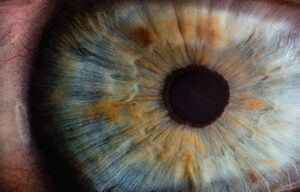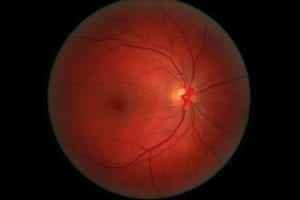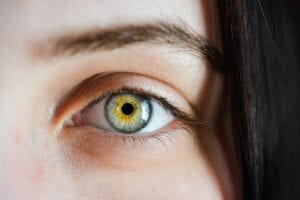Diabetic Retinopathy
What is diabetic retinopathy?
Diabetic retinopathy is a complication of diabetes that can result in the loss of vision or even blindness. It’s the most common form of vision loss associated with diabetes.
What are the symptoms of diabetic retinopathy?
The early symptoms of diabetic retinopathy are typically not noticeable. They will come and go, often including seeing faraway objects or increased difficulty with reading. As the disease progresses, symptoms will evolve to include dark spots or streaks in one’s vision, vision loss, or complete blindness.
There are possible complications of this condition as well, such as neovascular glaucoma, retinal detachment, and diabetic macular edema.
What causes diabetic retinopathy?
High levels of sugar caused by diabetes can lead to damage of the retina, as the blood vessels leading to it become blocked. The result is leaks or bleeds in the vessels, which then causes the characteristic symptoms. In addition, the body will try to grow new blood vessels to replace the blocked ones, but these vessels are prone to leaking or bleeding as well.
In terms of risk factors, any person with any form of diabetes is susceptible. The risk increases with the amount of time one has had diabetes. Pregnancy also raises the risk.
How is diabetic retinopathy diagnosed?
A dilated eye exam is the only diagnostic test needed to diagnose diabetic retinopathy. As people with diabetes should receive regular eye exams, this condition is most typically diagnosed during one of these visits.
What are the treatments for diabetic retinopathy?
In the early stages of the disorder, maintenance is the only treatment. Doctors will perform eye exams very regularly to monitor disease progression. If the disease has progressed, treatment can work to prevent any further vision loss, although it cannot reverse any damage. Treatment options include injections of anti-VEGF drugs or corticosteroids, vitrectomy, and laser treatment.
There are steps to prevent diabetic retinopathy as well, all of which relate to managing diabetes. Follow doctor’s instructions, eat a healthy diet, exercise regularly, and try to maintain a normal blood sugar level.
Where can I find out more about diabetic retinopathy?
Diabetic Retinopathy Articles

Study: Tirzepatide Lowers Risk of Pancreatitis and Diabetic Retinopathy vs GLP-1s
According to a story from Healio, analysis of the FDA Adverse Events Reporting System database indicates that tirzepatide has a superior safety profile when compared

Long-Term Safety and Efficacy Data Available on Vabysmo for Diabetic Macular Edema
Since its development and approval, Vabysmo has been a game-changer in the ophthalmologic space. The injectable VEGF and Ang-2 inhibitor treats diabetic macular edema (DME),

Predicting Anti-VEGF Response in Diabetic Macular Edema Using AI
According to a story from Healio, Joe Luvisi, MD, discusses how AI can be utilized to predict a patient’s response to anti-VEGF therapy in patients

FLORetina-ICOOR Meeting: Do GLP-1 Agonists Increase Risk of Diabetic Retinopathy?
Editor’s Note: Chronic conditions and rare diseases don’t discriminate, Patient Worthy and its partners are interested in amplifying the voices of those from all identities

Positive Data Reported on ABBV-RGX-314 for Diabetic Retinopathy
Vascular endothelial growth factor (VEGF) has been proven to increase how permeable blood vessels are in the eyes, causing them to leak. When new blood

EYP-1901 Shows Promise in Diabetic Retinopathy, Wet AMD
The ongoing Phase 2 PAVIA clinical study is evaluating EYP-1901 as a potential therapeutic intervention for people with moderately severe to severe non-proliferative diabetic retinopathy;

Vabysmo Shows Advantages Over Aflibercept in Wet AMD and Diabetic Macular Edema
An announcement from the drug company Genentech highlights the results of a recent study which demonstrated that the drug faricimab-svoa (marketed at Vabysmo) was able

Using Teleretinal Imaging Could Improve Diabetic Retinopathy Screening
Our country has an issue when it comes to screening for diabetic retinopathy. In addition to clinics lacking the necessary imaging programs, the compliance



